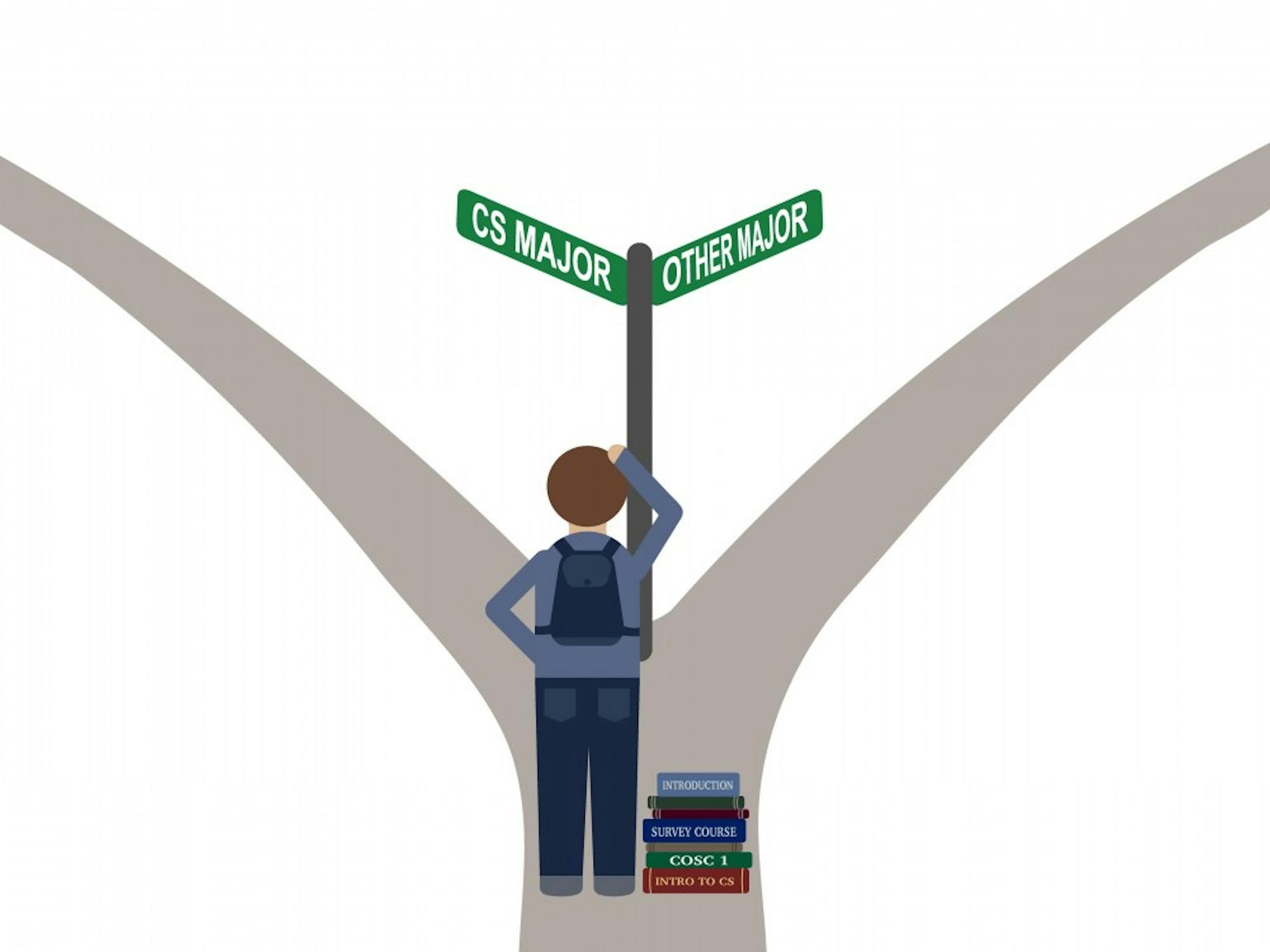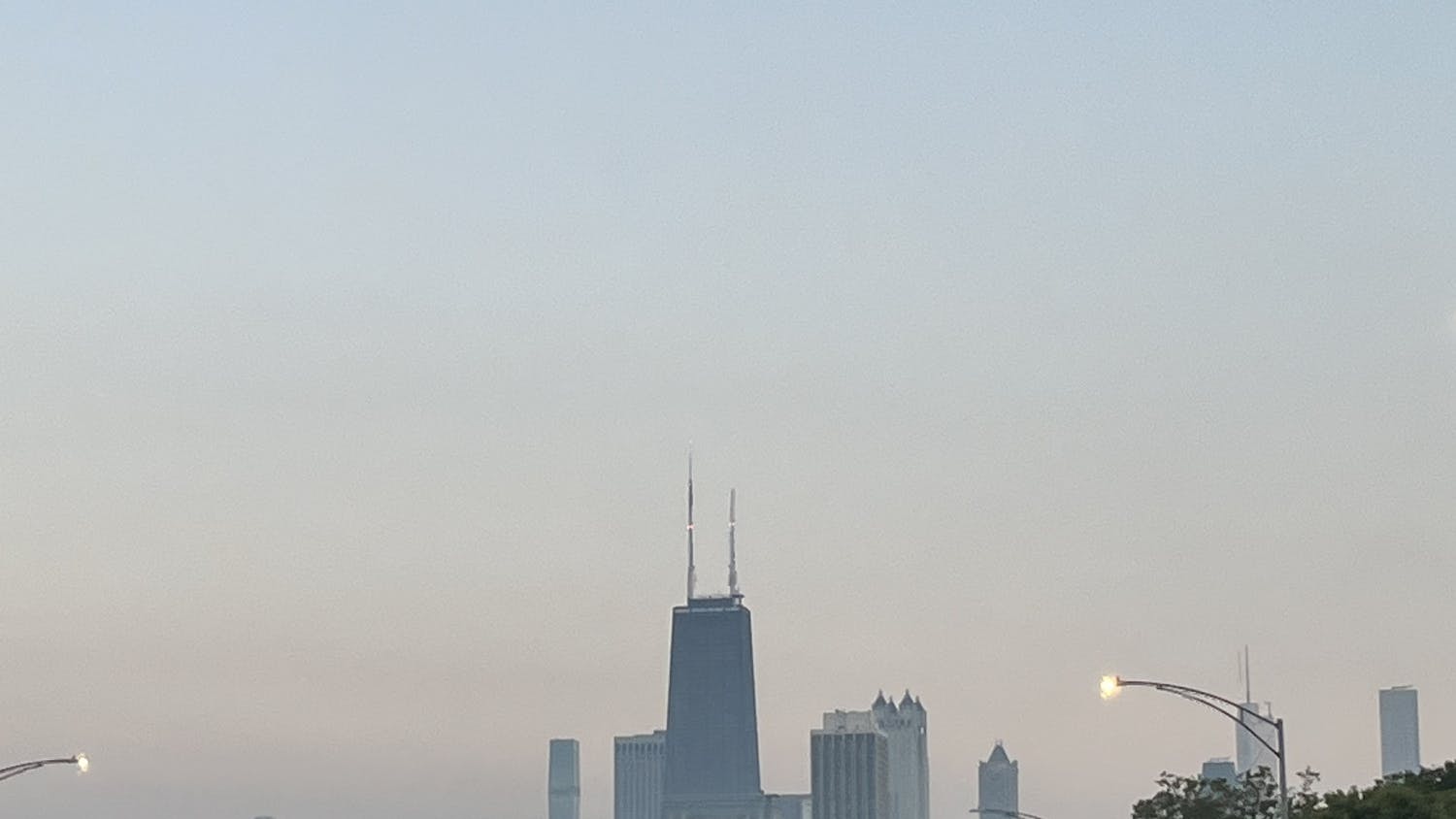When I first arrived at Dartmouth, I was the most undecided of all “undecided” majors. Freshman year, I spiraled through many options until I finally settled on English. Literature has always been my passion, and besides, I am clearly a humanities person.
Then, this past fall, I took Computer Science 1, “Introduction to Programing and Computation.” Considered one of the hardest classes at Dartmouth (at least for beginners) and notoriously scary, Computer Science 1 would fulfill my dreaded lab credit. I was terrified of the course, until a few weeks into the term, when I realized that coding was the work I most enjoyed. I started doing all of my CS assignments early, working on labs from morning until evening on the same day that they were released. I was hooked on coding, and I suddenly found myself saying that I might minor, or even double major, in computer science. A single class had completely altered my perceptions of myself, my interests and my abilities. It might have changed my life forever.
According to a Pulse survey, approximately one-third of Dartmouth students have changed their major at some point. For some students, myself included, one class is all it takes.
Tara Sweeney ’19 started college as a German and linguistics double major, but she was never truly excited about her plans for the future.
“At first I had been thinking I was going to be a linguistics professor, but then I kind of realized that [linguistics] wasn’t what I saw myself doing,” Sweeney said. “So then I said I was going to go to law school, and I actually took the LSAT, got a good score on it [and] was really going to do that, even though in my heart I knew that’s not what I wanted.”
During her sophomore summer, Sweeney took Astronomy 1, “Exploration of the Solar System.” While she had friends taking astronomy simply to fulfill distributive requirements, Sweeney found herself captivated by the subject. She started reading chapters of the textbook just for fun, eager to learn about more advanced topics.
After taking Astronomy 1, Sweeney contemplated switching her major, but she thought it was too late; she was going to be abroad her junior fall and off in the winter. Still, Sweeney couldn’t stop thinking about the universe.
“Whenever I talked to astronomy majors I knew, I was insanely jealous of them. I honestly found myself crying about it because [it’s] such a cool topic and what I wanted to study,” Sweeney said. “I came back my junior spring and it was really on my mind — by week 7, I [had] to do something about it.”
Now, Sweeney is committed to majoring in both linguistics and astronomy, which means she has to enroll in classes next year. This fall, she took prerequisite courses in math and physics, and she is taking her second astronomy course this winter.
“It’s kind of weird to be putting in the hard work now, and to face this daunting task and not even be taking the subject that I’m excited about,” Sweeney said. “But going through that challenge is just a reminder of how much I want it and how sure I am.”
According to Sweeney, one class can absolutely change your life.
“If I hadn’t taken that class,” Sweeney explained, “I wouldn’t have realized [astronomy] was my passion, and then I wouldn’t have made the change, and I would have been a sad lawyer. If you think you might be interested in something, go for it, because you never know and it could be life-changing.”
Sarah Gupta ’19 had a similar experience, and she agrees that a single class can open up unexpected opportunities. Until she took Linguistics 1, “Introductory Linguistics,” Gupta thought she wanted to be pre-med and major in biology. She took math and science classes in high school, but when she got to Dartmouth, she realized those subjects were difficult, but not very rewarding.
“I think that the more challenging classes are, the more you have to think, ‘Do I really want to put in the work for this? Do I actually enjoy it?’” Gupta said. “[Linguistics] is hard, but I do really like it.”
Both Sweeney and Gupta said that the subject itself was what made their pivotal classes so transformative. Gupta also emphasized the importance of the right people — both professor and peers. She was able to discover a sense of community in the linguistics department that she never found when she took introductory science classes.
Micah Taylor ’21 also found a new academic community when he took Engineering 12, “Design Thinking” this past fall. Before taking that class, Taylor thought he would end up working in government or some other “backup” job. Inspired by the structure of Engineering 12 and his enthusiastic classmates, Taylor now wants to pursue a creative career in human-centered design.
“[Engineering 12] is a really well-designed class,” Taylor said. “The assignments are all well thought-out and really clear. You’re always working with changing groups, but everyone taking the class is in the class because they want to be in the class.”
Although Taylor knows that a single class can change your life, he also acknowledges that it can be hard to take classes outside your comfort zone.
“It’s easier to stick with a plan that you started in freshman year and finish that because it’s safe and because it will get you a job,” Taylor said. “A lot of times, exploring and taking classes that might be really hard but not work towards your major doesn’t make sense, from a gains-losses perspective.”
Taylor said that the way to find the best, most engaging classes is simply by talking to other students and alumni about their favorite courses at Dartmouth. He also recommends asking people about their favorite professors, since quality of teaching is ultimately the most important.
Sophomore year might seem too late to start a new major or minor, but Sweeney, Gupta, Taylor and I all stumbled upon new academic passions over a year into our time at Dartmouth. It sounds cheesy, but you never know what class will excite you, shift your D-Plan, even rewrite your future career. If a class description intrigues you, sign up — especially if it’s in an unknown department. It might just change everything.




